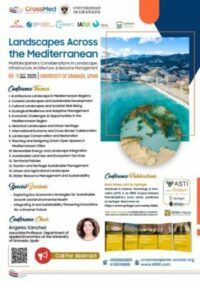Jul
2021
Aug
2021
Recycling of road pavement materials allows the use of raw materials in a more sustainable way and contributes to the creation of a circular economy. The entire life cycle of the products in the pavement, through focusing on their design, promoting circular economy processes, and fostering sustainable consumption, aims to ensure that the resources used are kept in the economy for as long as possible. Carrying out recycling policies may have significant impacts on the civil engineering activities, including the construction and exploitation of transport infrastructure. Through a global framework supported by sustainable production with green technologies, pavement engineering can also contribute to successfully achieving sustainable development goals. The implementation of consumption and production patterns based on recycling, along with the adoption of an industrial symbiosis approach, can promote sustainable urban development under a carbon-neutral economy through the use of green technologies. Due to intense research and practice, recycling has been used in pavement construction, maintenance, and rehabilitation in recent decades. Recycling of road pavement materials prevents extraction of non-renewable resources and minimizes waste production. It can save energy and decrease greenhouse gas emissions, therefore reducing pollution. Recycling effectively helps to reduce environmental impacts and to combat climate change as a whole. The purpose of this Special Issue is to collect and publish specific original technical and research papers, including review papers, focusing on recycling of road pavement materials (e.g., unbound granular materials, asphalt mixtures, concrete, cement and other hydraulically bound mixtures, aggregates, binders, and additives) to promote pavement sustainability performance.
Keywords: Road pavement materials; Recycled products in pavement construction; Urban heat island effects; Sustainable production; Industrial symbiosis; Carbon-neutral economy; Green technology; Sustainable development; Circular economy; Sustainable urban development; Recycling policy.
The Use of Recycled Materials to Promote Pavement Sustainability Performance
Recycling of road pavement materials allows the use of raw materials in a more sustainable way and contributes to the creation of a circular economy. The entire life cycle of the products in the pavement, through focusing on their design, promoting circular economy processes, and fostering sustainable consumption, aims to ensure that the resources used are kept in the economy for as long as possible. Carrying out recycling policies may have significant impacts on the civil engineering activities, including the construction and exploitation of transport infrastructure. Through a global framework supported by sustainable production with green technologies, pavement engineering can also contribute to successfully achieving sustainable development goals. The implementation of consumption and production patterns based on recycling, along with the adoption of an industrial symbiosis approach, can promote sustainable urban development under a carbon-neutral economy through the use of green technologies. Due to intense research and practice, recycling has been used in pavement construction, maintenance, and rehabilitation in recent decades. Recycling of road pavement materials prevents extraction of non-renewable resources and minimizes waste production. It can save energy and decrease greenhouse gas emissions, therefore reducing pollution. Recycling effectively helps to reduce environmental impacts and to combat climate change as a whole. The purpose of this Special Issue is to collect and publish specific original technical and research papers, including review papers, focusing on recycling of road pavement materials (e.g., unbound granular materials, asphalt mixtures, concrete, cement and other hydraulically bound mixtures, aggregates, binders, and additives) to promote pavement sustainability performance.
Keywords: Road pavement materials; Recycled products in pavement construction; Urban heat island effects; Sustainable production; Industrial symbiosis; Carbon-neutral economy; Green technology; Sustainable development; Circular economy; Sustainable urban development; Recycling policy.
DOAJ, FSTA-Food Science and Technology Abstracts (IFIS), Inspec (IET), Norwegian Register for Scientific Journals, Series and Publishers (NSD), Scopus (Elsevier), CLOCKSS (Digital Archive), e-Helvetica (Swiss National Library Digital Archive), Academic OneFile (Gale/Cengage Learning), EBSCOhost (EBSCO Publishing), Google Scholar, J-Gate (Informatics India), Science In Context (Gale/Cengage Learning), WorldCat (OCLC).
Info at: www.mdpi.com/journal/recycling/apc
Guest Editors
Prof. Dr. José Neves
Dr. Ana Cristina Freire










